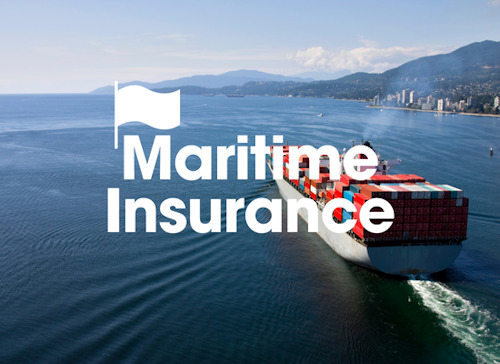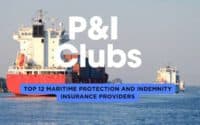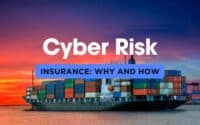Flag State Decisions: Saving on Maritime Insurance Through Strategic Registrations

The choice of a ship’s flag can significantly impact the terms, costs, and scope of insurance coverage, primarily due to the varying legal and regulatory frameworks associated with each flag state. By exploring these differences, we aim to equip ship owners, insurers, and maritime law professionals with the knowledge to make informed decisions about registry and insurance strategies that align with their operational needs and financial objectives.
ShipUniverse: Flag State Summary
| Flag State | Insurance Cost Impact | Reason for Cost Variation |
|---|---|---|
| Panama | Lower | Largest flag of convenience with lenient regulations and lower compliance costs but perceived higher risks due to less stringent oversight. |
| Liberia | Lower | Offers a business-friendly maritime registry with efficient administration but less rigorous enforcement, leading to potentially higher risks. |
| Marshall Islands | Lower to Moderate | Combines lenient policies with adherence to international standards, offering competitive but not the lowest insurance costs. |
| Hong Kong | Moderate | Strong regulatory framework and good safety records lead to moderate insurance costs. |
| Singapore | Moderate to High | High safety standards and strict regulatory compliance lead to moderate insurance costs. |
| Malta | Moderate | EU member with solid regulatory practices but offers competitive costs and efficient registration processes. |
| Bahamas | Moderate | Good safety record and compliance with international laws, balancing cost with risk effectively. |
| China | Higher | Strict regulations and increasing adherence to international standards result in higher costs. |
| Greece | Moderate | Strong historical maritime tradition with good safety standards and moderate insurance costs. |
| Japan | Higher | High compliance with international standards and excellent safety records lead to higher but justified insurance costs. |
| South Korea | Moderate to High | Well-enforced maritime laws and high technological standards result in moderate to high insurance costs. |
| Italy | Moderate | EU regulations ensure high safety and environmental standards, leading to moderate insurance costs. |
| Cyprus | Moderate | EU member with competitive registration services and decent safety standards, leading to moderate costs. |
| Isle of Man | Moderate | Known for high safety and regulatory standards, appealing to operators looking for stable and reliable insurance terms. |
| Norway | Higher | Strict safety and environmental standards, leading to higher insurance costs due to stringent regulations. |
| United Kingdom | Moderate to High | Strong safety regulations and robust enforcement mechanisms contribute to higher costs. |
| Netherlands | Moderate to High | High safety and environmental standards enforced strictly, leading to moderate to high costs. |
| Denmark | Moderate to High | Danish International Ship Register offers competitive conditions but maintains high safety standards, impacting insurance costs. |
| India | Moderate | Increasing regulatory standards and improved safety measures are leading to moderate insurance costs. |
| Philippines | Lower to Moderate | Growing in popularity due to competitive costs, but varying safety records may affect the risk assessment and thus insurance premiums. |
| United States | Higher | Stringent safety, labor, and environmental regulations lead to higher insurance costs. |
| Turkey | Moderate | Improving standards and a strategic geographic position influence moderate insurance costs. |
| Portugal | Moderate | EU membership ensures adherence to stringent maritime laws, resulting in moderate insurance costs. |
| Antigua and Barbuda | Lower | Offers competitive registration costs and is favorable for smaller fleets, but perceived risks can be higher. |
| France | Higher | Rigorous enforcement of maritime safety and environmental laws results in higher insurance costs. |
| Germany | Moderate to High | High standards of safety and strict regulatory compliance push insurance costs up. |
| St. Vincent and the Grenadines | Lower | Attractive due to lower costs and less rigorous regulation, though this can lead to higher perceived risks. |
| Thailand | Moderate | Increasing focus on improving maritime safety standards, resulting in moderate insurance costs. |
| Bermuda | Moderate to High | Known for high regulatory standards and robust safety measures, leading to moderately high insurance costs. |
| Belgium | Moderate to High | Strong focus on safety and environmental sustainability, influencing insurance premiums to be on the higher side of moderate. |
Understanding Maritime Insurance
Key Concepts:
- Hull Insurance: Hull insurance is fundamental for protecting the vessel's physical integrity and operational readiness. It covers damages to the ship's body and machinery caused by a wide range of maritime hazards, including collisions, fire, grounding, and weather-related incidents. This form of insurance is crucial for ensuring that shipowners can afford repairs or replacement, thereby maintaining their fleet’s operational capacity.
- Protection & Indemnity (P&I): P&I insurance is a form of mutual insurance unique to the maritime industry, managed by P&I Clubs. This coverage addresses third-party liabilities that are not typically covered under standard hull policies. It includes, but is not limited to, injuries or death of crew members and passengers, damage to or loss of cargo, fines for regulatory breaches, wreck removal, and environmental damage such as oil spills. This liability coverage is critical as it protects ship owners against claims that can be exceedingly high, potentially running into millions of dollars.
- Cargo Insurance: Essential for the commerce side of maritime operations, cargo insurance covers the loss or damage of goods in transit over water, land, and air. Policies are adapted to the nature of the goods, the routes taken, and the risks anticipated. Effective cargo insurance mitigates the financial risks associated with global trade, ensuring that the interests of both shippers and receivers are protected against unforeseen events during transit.
Legal Frameworks Influencing Insurance
International Regulations: Maritime insurance policies are significantly shaped by international regulatory frameworks designed to ensure safety, environmental protection, and standardized operations across the global shipping industry. Two pivotal conventions in this realm are the International Convention for the Safety of Life at Sea (SOLAS) and the International Convention for the Prevention of Pollution from Ships (MARPOL).
- SOLAS: This convention sets minimum safety standards related to the construction, equipment, and operation of ships. Compliance with SOLAS requirements is crucial for insurers, as it affects the risk profiles of insured vessels. Ships that adhere to these standards are considered lower risks, which can influence the terms and costs of hull and machinery insurance.
- MARPOL: MARPOL aims to prevent and minimize pollution from ships both at sea and in ports. It includes regulations on oil, noxious liquid substances, harmful substances in packaged form, sewage, garbage, and air pollution. Insurance policies must account for the liability risks associated with environmental damage, which can be substantial. Compliance with MARPOL can mitigate these risks, potentially leading to more favorable insurance premiums.
National Laws: The laws of the flag state—i.e., the country where a ship is registered—also play a critical role in shaping maritime insurance policies. Each flag state has its own regulations governing vessel safety, environmental standards, and crew welfare, which can vary widely.
- Regulatory Compliance: Insurers need to evaluate the extent of regulatory compliance enforced by the flag state. Flags known for stringent enforcement of international and national maritime laws may lead to lower risk profiles for their ships, thereby influencing insurance premiums and coverage terms.
- Legal Liabilities: The legal framework of a flag state determines the liabilities that ship owners face in case of incidents like oil spills, collisions, or salvage operations. These liabilities directly impact the cost and scope of P&I insurance.
Risk Assessment and Premium Calculation
Factors Influencing Risks: Risk assessment in maritime insurance is a complex process influenced by numerous factors, which help insurers determine the level of risk associated with insuring a particular vessel.
- Ship Age: Older ships are generally considered higher risk due to potential issues with structural integrity and outdated technology. This often results in higher premiums.
- Type of Ship: Different types of ships, such as oil tankers, cargo ships, and passenger vessels, have different risk profiles based on their operational nature and the hazards they are likely to encounter.
- Operational Area: Ships operating in high-risk areas, such as piracy-prone zones or regions with severe weather conditions, face higher premiums due to the increased likelihood of incidents.
Premium Differences: Insurance premiums can vary significantly depending on the flag under which a ship is registered, primarily due to the perceived risks associated with the flag’s regulatory environment and its enforcement record.
- Perceived Risk: Flags with lax enforcement of safety and environmental regulations might carry higher perceived risks, leading insurers to charge higher premiums to cover potential liabilities.
- Legal Frameworks: The robustness of a flag state’s legal system can also impact premiums. Strong legal systems that can effectively handle claims and disputes give insurers confidence, potentially lowering premiums.
Factors Influencing Insurance Costs by Flag
- Regulatory Compliance and Enforcement:
- Stringent vs. Lenient Regulations: Flags with strict regulatory environments, such as the United States or Norway, often impose higher compliance costs. However, they may offer lower insurance rates due to perceived lower risks associated with better regulation and enforcement.
- Flags of Convenience: Countries like Panama, Liberia, and the Marshall Islands offer more lenient regulatory frameworks, which can reduce operational costs but might lead to higher insurance premiums due to perceived higher risks.
- Historical Safety and Accident Records:
- Insurers closely examine the safety records of ships flying under different flags. A flag state with a poor safety record might lead to higher premiums due to the increased risk of incidents and claims.
- Political and Economic Stability:
- The political and economic stability of a flag state plays a crucial role in determining insurance costs. Stable countries are perceived as lower risk, which can translate into lower insurance premiums.
Choosing the Right Flag State for Lower Insurance Costs
- Evaluate Safety and Regulatory Records:
- Research and compare the safety records and regulatory standards of potential flag states. Opting for a flag with a strong track record in safety and strict adherence to international regulations can be more beneficial in the long run, potentially resulting in lower insurance costs.
- Consider Total Operating Costs:
- While insurance is a significant factor, it’s essential to consider all operating costs associated with a flag state, including registration fees, taxes, and crew wages. A holistic approach will ensure that the savings on insurance do not get offset by other higher costs.
- Consult with Maritime Insurance Brokers:
- Maritime insurance brokers have in-depth knowledge of how different flag states are perceived by insurers. Consulting with a broker can provide insights into how changing your flag state might affect your insurance premiums.
- Regular Reviews and Adjustments:
- The maritime industry and insurance landscapes are constantly evolving. Regularly reviewing your flag state choice and insurance policies in light of current conditions and regulations is advisable to ensure continued savings.
Case Studies: Flags with Low Insurance Costs
Examples: Several flags are known for their comparatively lower maritime insurance costs. Notably, countries like Liberia and the Marshall Islands often offer competitive insurance rates.
- Liberia: As one of the largest flags of convenience, Liberia has a reputation for lower insurance costs. The Liberian Registry offers a mix of modern laws and a commitment to international maritime standards, which helps maintain reasonable insurance premiums.
- Marshall Islands: Similar to Liberia, the Marshall Islands is recognized for its efficient administrative processes and adherence to international regulations without the burden of onerous national laws, which can keep insurance costs lower.
Analysis: The lower insurance costs associated with these flags can be attributed to several factors:
- Legal Leniencies: Both Liberia and the Marshall Islands provide a regulatory environment that balances robust international compliance with a business-friendly approach. This includes efficient registration services and more manageable oversight processes which reduce operational burdens on ship owners.
- Administrative Practices: Efficient administrative practices and a focus on customer service help in maintaining a fleet that adheres to international standards but without the heavy regulatory overhead found in more stringent jurisdictions. This efficiency reduces the administrative costs associated with compliance, which can translate into lower insurance premiums.
Case Studies: Flags with High Insurance Costs
Examples: Countries like the United States and Norway often have higher maritime insurance costs due to their stringent regulations and oversight.
- United States: Under the U.S. flag, ships must comply with stringent safety, labor, and environmental regulations, which can increase operational costs and, consequently, insurance premiums.
- Norway: Known for its rigorous enforcement of maritime safety and environmental laws, Norway's regulations ensure high standards of operation, which while enhancing safety, also increase the costs associated with insurance.
Analysis: The higher insurance costs in these countries can be traced back to several key factors:
- Stringent Regulations: Both the United States and Norway have comprehensive maritime laws that enforce strict standards on safety, environmental protection, and crew welfare. These regulations ensure high operational standards but also increase the risk and cost for insurers, who must cover higher potential liabilities.
- Historical Loss Experiences: The insurance industry relies heavily on historical data to assess risk. In jurisdictions with a history of higher claims, whether due to environmental incidents, labor issues, or accidents, insurers must adjust premiums upwards to account for this increased risk.
In both cases, while the higher standards of operation under these flags offer benefits in terms of safety and environmental protection, they also necessitate higher insurance costs. Understanding these dynamics is crucial for ship owners and operators when making decisions about flag registration and insurance procurement.
The Role of Insurance Brokers and Agents
Intermediaries' Role: Insurance brokers and agents play a pivotal role in the maritime industry by acting as intermediaries between shipowners and insurance companies. Their expertise and knowledge are crucial in navigating the complexities of maritime insurance, especially given the variability in regulations and practices across different flags of registry.
- Navigating Complexity: Brokers and agents have in-depth knowledge of the insurance landscape, including the nuances of different insurance markets and the specific requirements of various flag states. They use this knowledge to advise shipowners on the best policies for their specific needs.
- Customizing Insurance Solutions: Brokers and agents are instrumental in customizing insurance policies that cater specifically to the risks associated with particular types of ships, cargo, and operational routes. They can negotiate terms with insurers that are tailored to the unique needs of each vessel or fleet.
Choosing the Right Partner: Selecting the right insurance broker or agent is critical for ensuring adequate coverage and service. Here are some tips for choosing the right partner:
- Industry Expertise: Look for brokers or agents with specific expertise in maritime insurance. Knowledge of international maritime regulations, experience with different flags, and understanding of the unique risks associated with maritime operations are essential.
- Reputation and Reliability: Assess the reputation of the broker or agent. Check references and reviews from other shipowners or operators to gauge their reliability and the quality of their service.
- Access to Multiple Insurers: Choose a broker who has access to a broad range of insurers. This ensures more options and competitive pricing when it comes to your insurance policy.
- Support and Service: Consider the level of support and service offered. It's important to have a broker or agent who is responsive and available to assist with claims handling and any queries or issues that arise.
Future Outlook:
Looking ahead, several trends could reshape the landscape of maritime insurance:
- Technological Advancements: The integration of new technologies such as IoT, blockchain, and AI in maritime operations could lead to more precise risk assessments and more efficient claims processing, potentially lowering costs and improving service delivery.
- Global Political Shifts: Changes in international trade agreements and geopolitical tensions can alter trading routes and operational risks, requiring adjustments in insurance strategies and policies.
- Environmental Regulations: As global emphasis on environmental sustainability increases, regulations are likely to become stricter. This will influence the liabilities covered under maritime insurance and could lead to higher premiums, especially for older ships and those using less environmentally friendly technologies.
- Pandemic and Health-related Risks: Recent global health crises might lead to more comprehensive coverage options that address pandemics and other health-related interruptions in shipping.
Navigating the future of maritime insurance will require adaptability and a keen understanding of both global trends and local conditions, underscoring the importance of expert advice and flexible insurance solutions in this dynamic industry.
Additional References
International Maritime Organization (IMO) Publications:
- The IMO is the United Nations agency responsible for the safety and security of shipping and the prevention of marine and atmospheric pollution by ships. Their publications on global maritime regulations such as SOLAS and MARPOL would provide authoritative insights.
- International Maritime Organization
Insurance Market Reports:
- Annual reports or white papers from major marine insurance providers like Allianz, Lloyd's of London, or Gard can offer detailed insights into trends, risk assessments, and the impact of different flags on insurance policies.
- Lloyd's of London Marine Insurance
Maritime Law Journals:
- Academic and professional journals that focus on maritime law could provide articles and papers discussing the legal implications of different flags of registry and how they influence insurance law and practices.
- Journal of Maritime Law & Commerce
Flag State Reports and Statistics:
- Official websites or publications from flag states like the Marshall Islands, Liberia, Norway, and the United States may have specific sections on their maritime regulations and the advantages they offer. These sources can provide firsthand information on the legal frameworks and administrative practices that influence insurance costs.
- Marshall Islands Registry
International Chamber of Shipping (ICS) Guidelines:
- The ICS publishes guidelines and reports that discuss the standards and expectations for shipping operations under different flag states, which can directly or indirectly impact insurance policies and practices.
- International Chamber of Shipping Publications

Do you have a Maritime Product or Service that may be of interest to Shipowners? Tell us about it here!
Do you have feedback or insights? Please reach out to editor @ shipuniverse.com



